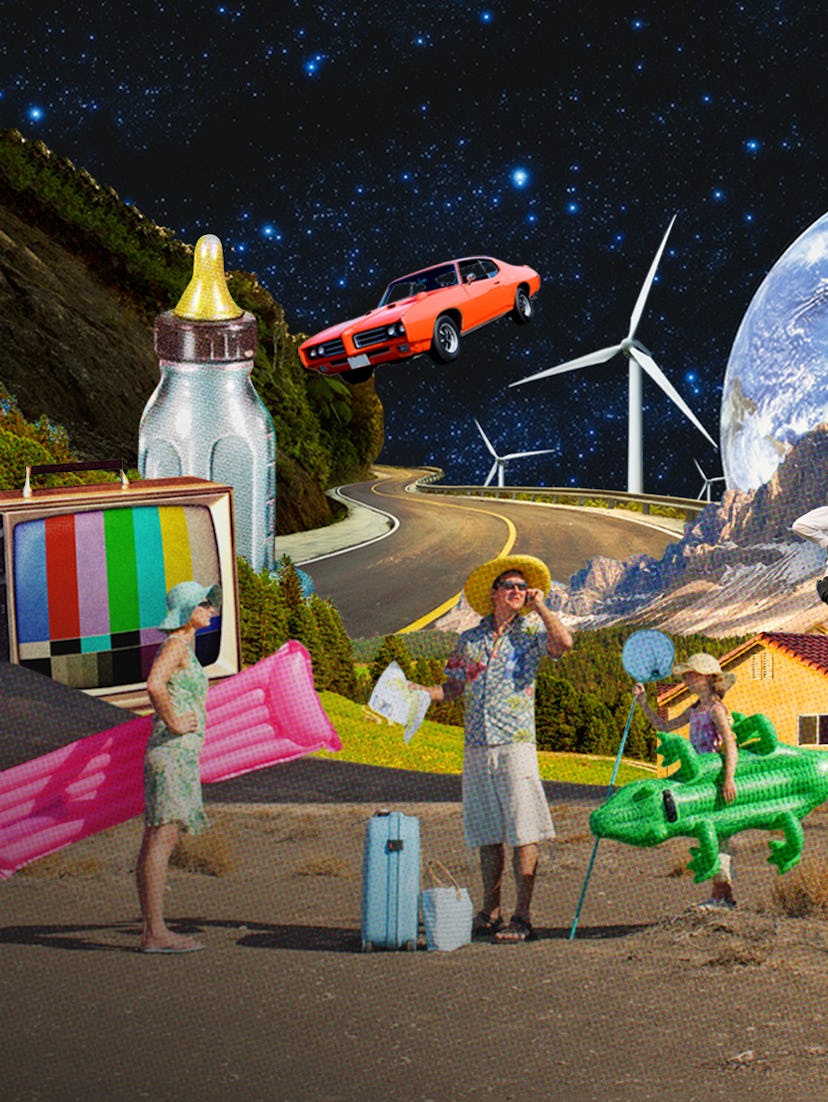
An existential service package
Advice for raising children through the crisis of a lifetime.

An existential service package
Advice for raising children through the crisis of a lifetime.
So often it feels like we are parenting at the end of the world. Whenever I'm prompted to think about the not-so-distant future — our children's future, especially — my brain, as if by some self-protective instinct, goes blank. I'm left with more questions than answers, and the questions are stressful ones: How to talk to my kids honestly about climate change without psychologically damaging them? How to make sure the chaotic political situation of 2020 never happens again? How to center young, marginalized people without putting the weight of the literal world on their shoulders? Has it always felt like the end of the world? What will our kids' future actually look like?
Like all of life’s most pressing questions, some of them are unanswerable, but we followed through, anyway. What we found, when we went looking, was much better than expected. It was hope: There are so many very smart people who are still optimistic. After hearing from the people who are already out there, doing the work — young activists and psychotherapists, educators and futurists, voting rights experts and Elizabeth Warren — I don't just believe in the necessity of hope. I feel it.
I hope reading this gives you that feeling, too.
— Meaghan O'Connell, Features Editor
Climate anxiety is real. If there was any lingering doubt, it was put to rest by a recent survey of 10,000 young people, across 10 countries, between the ages of 16-25. The results were, as the study’s co-author Caroline Hickman put it, quite devastating. “We have to talk to children about these frightening things that are going on in the world, but we have to find ways to do that that helps them understand what's going on and not feel alone.”
No small task, so we called in the experts: six therapists, educators, and community organizers share how to talk to your kids about what’s happening without making them feel doomed. Read it here.
By Sara B. Franklin
Indigenous communities have been at the front line of environmental battles long before the phrase “global warming” entered our cultural lexicon. We asked five young indigenous activists how they feel about the future, what keeps them going (despite everything), and what needs to change. Read it here.
By Michelle Cyca
After speaking with around a dozen futurists, we found they perceived the coming years and decades differently than the more despairing among us. The future is actually a range of possibilities rather than anything preordained, they reminded us, and that we can actually use this view to try to work towards the version we want. Read it here.
By Molly Langmuir
To young people, this current moment may seem particularly dire, but how does the chaos of 2021 feel to those who lived through the last century? We talked to people who experienced first hand the Great Depression, World War II, and Jim Crow, people whose mothers couldn’t vote and whose children hid under their school desks during the Cuban Missile Crisis, and asked them how the present feels to them. Has the world always felt like it was on the brink of disaster? Are they hopeful for the future? Read it here.
By Jordan Ligons
A reading list for the end of the world